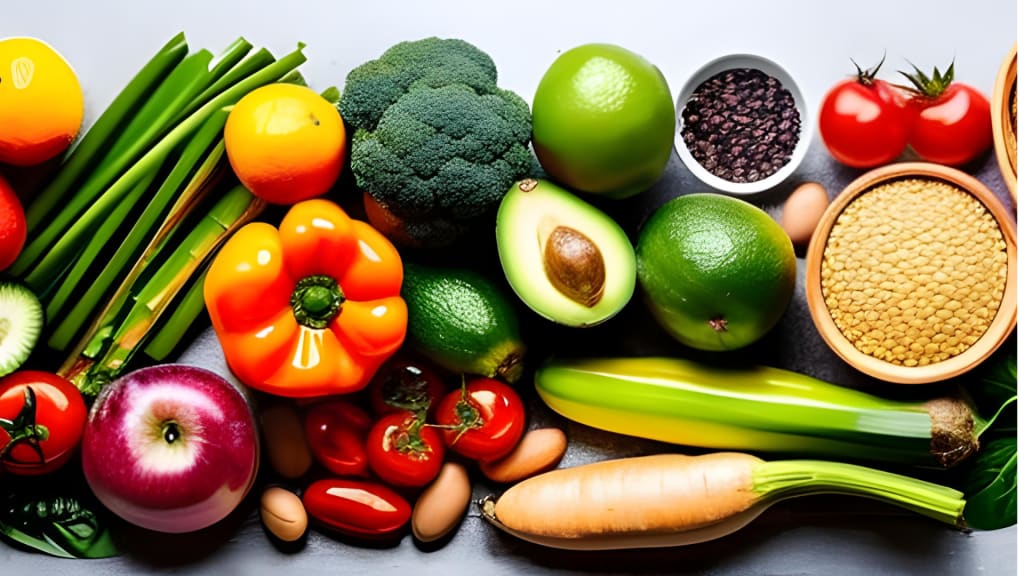
The Rise of Plant-Based Diets
Over the past few years, there has been a significant rise in the popularity of plant-based diets. More and more people are choosing to eliminate or reduce their intake of meat, dairy, and other animal products in favor of plant-based alternatives. In this article, we'll take a closer look at the reasons behind this trend and explore the benefits of a plant-based diet.
Why Plant-Based Diets Are on the Rise
There are several reasons why plant-based diets are becoming increasingly popular. One of the main reasons is health. Plant-based diets are often rich in nutrients, fiber, and antioxidants, which can help to reduce the risk of chronic diseases such as heart disease, diabetes, and cancer. In addition, plant-based diets are typically lower in saturated fat and cholesterol, which can contribute to better heart health.
Another reason why plant-based diets are on the rise is environmental concerns. The production of meat and other animal products has a significant impact on the environment, contributing to greenhouse gas emissions, deforestation, and water pollution. By choosing to eat plant-based foods, individuals can reduce their carbon footprint and promote more sustainable food production practices.
Finally, animal welfare is another reason why some people are choosing to adopt plant-based diets. Concerns about the treatment of animals in factory farming and other industrial agriculture practices have led many people to seek out more ethical and humane food choices.
The Benefits of a Plant-Based Diet
In addition to the reasons why plant-based diets are becoming more popular, there are also numerous benefits associated with this way of eating. Some of the key benefits of a plant-based diet include:
1. Improved heart health: Plant-based diets have been shown to reduce the risk of heart disease, in part due to their lower levels of saturated fat and cholesterol.
2. Weight loss: Plant-based diets are often lower in calories and higher in fiber, which can contribute to weight loss and improved body composition.
3. Reduced inflammation: Plant-based diets are rich in anti-inflammatory nutrients, which can help to reduce inflammation throughout the body.
4. Improved digestion: The high fiber content of plant-based diets can improve digestive health and reduce the risk of conditions such as constipation and diverticulitis.
5. Reduced risk of certain cancers: Plant-based diets have been linked to a reduced risk of certain cancers, including breast, colon, and prostate cancer.
Making the Transition to a Plant-Based Diet
If you're interested in transitioning to a plant-based diet, there are several steps you can take to make the process easier. Start by incorporating more plant-based foods into your diet, such as fruits, vegetables, whole grains, legumes, and nuts. Gradually reduce your intake of meat, dairy, and other animal products, and experiment with plant-based alternatives such as tofu, tempeh, and seitan.
It's also important to ensure that you're getting all the nutrients your body needs, such as protein, iron, calcium, and vitamin B12. Consult with a registered dietitian to develop a well-balanced, plant-based meal plan that meets your nutritional needs.
In conclusion, the rise of plant-based diets reflects a growing awareness of the health, environmental, and ethical implications of our food choices. By incorporating more plant-based foods into your diet, you can reap the numerous benefits associated with this way of eating while promoting a more sustainable and compassionate food system.
- Plant-based diets can be beneficial for individuals with certain medical conditions, such as high cholesterol, type 2 diabetes, and inflammatory bowel disease.
- The popularity of plant-based diets has led to an increase in the availability and variety of plant-based products, such as meat substitutes, plant-based milks, and vegan cheeses.
- Plant-based diets can be sustainable and cost-effective, as many plant-based foods are affordable and require fewer resources to produce than animal products.
- While a plant-based diet can be healthy, it's important to ensure that you're getting enough of certain nutrients, such as protein, iron, and vitamin B12. This can be achieved through careful meal planning and, in some cases, the use of supplements.
- Plant-based diets can be a great way to experiment with new flavors and cuisines, as there are countless delicious and creative plant-based recipes available online and in cookbooks.
About the Creator
Devansh
Passionate about knowledge and lifelong learning. Follow me for engaging and informative content on a wide variety of topics, from science and technology to art and culture etc.






Comments
There are no comments for this story
Be the first to respond and start the conversation.